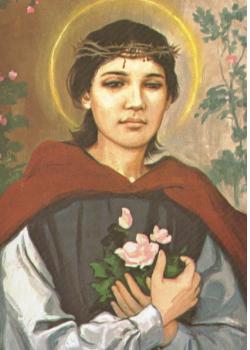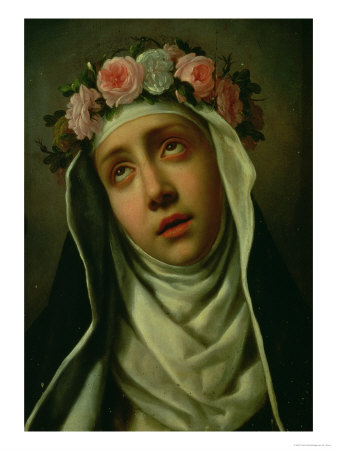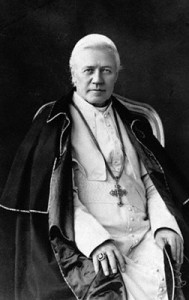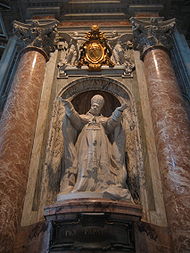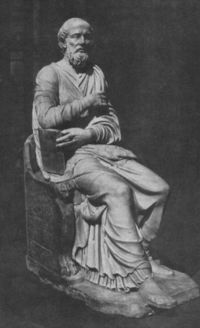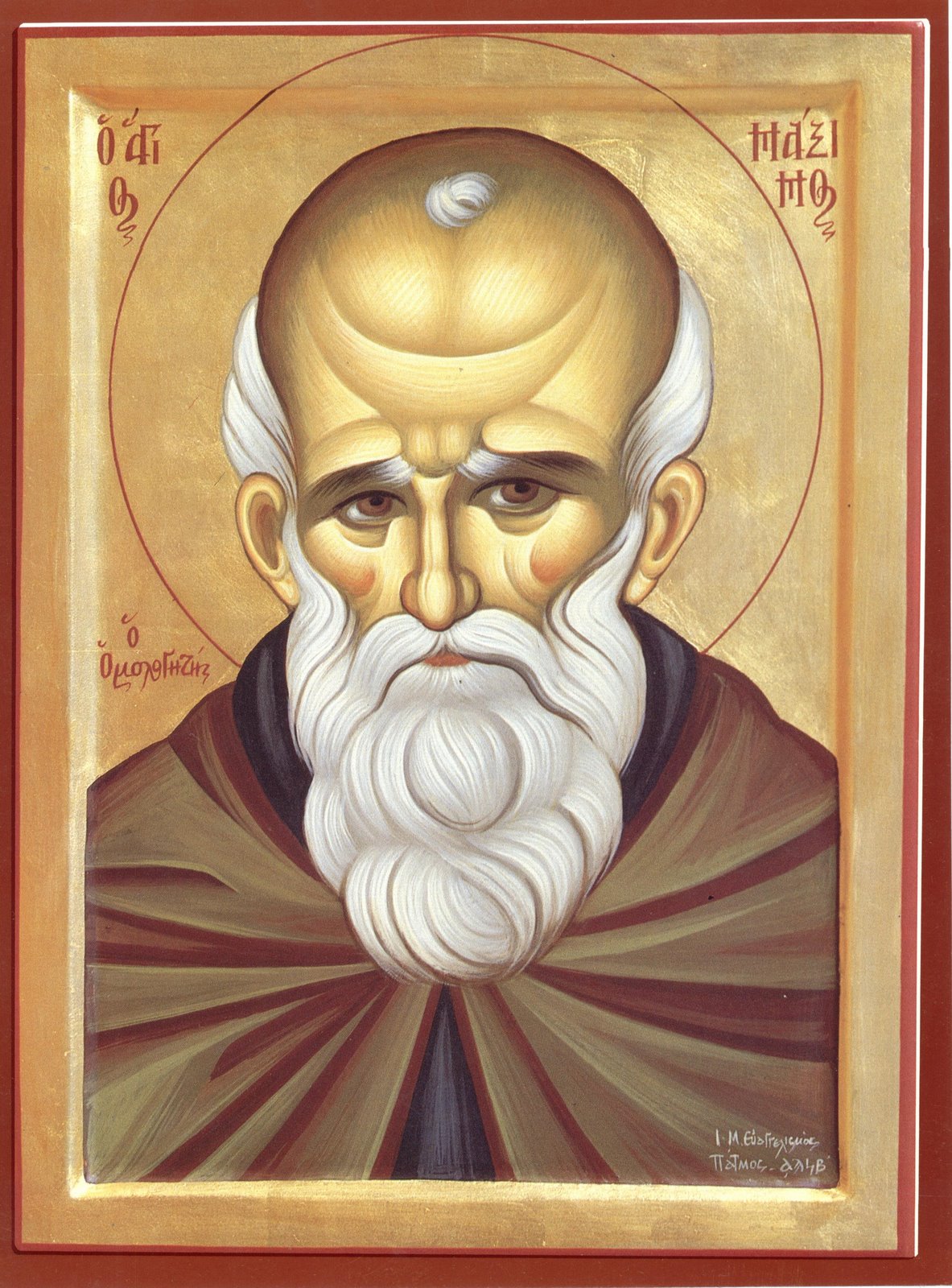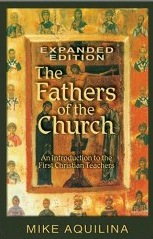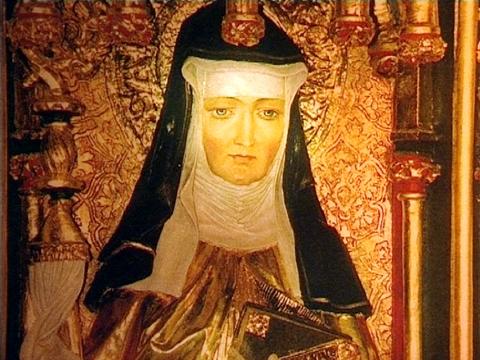 St. Hildegard was a woman who was a great mystic, writer, poet, musician, artist and a devout Benedictine nun! She valued the hierachy and authority of the Church, and even sought counsel and received validation from the great mystical doctor of the Church, St. Bernard of Clairvaux.
St. Hildegard was a woman who was a great mystic, writer, poet, musician, artist and a devout Benedictine nun! She valued the hierachy and authority of the Church, and even sought counsel and received validation from the great mystical doctor of the Church, St. Bernard of Clairvaux.
Papal Summer Residence, Castel Gandolfo
Wednesday, 1st September 2010“Saint Hildegard of Bingen
Dear Brothers and Sisters,
In 1988, on the occasion of the Marian Year, Venerable John Paul II wrote an Apostolic Letter entitled Mulieris Dignitatem on the precious role that women have played and play in the life of the Church. “The Church”, one reads in it, “gives thanks for all the manifestations of the feminine “genius’ which have appeared in the course of history, in the midst of all peoples and nations; she gives thanks for all the charisms that the Holy Spirit distributes to women in the history of the People of God, for all the victories which she owes to their faith, hope and charity: she gives thanks for all the fruits of feminine holiness” (n. 31).
Various female figures stand out for the holiness of their lives and the wealth of their teaching even in those centuries of history that we usually call the Middle Ages. Today I would like to begin to present one of them to you: St Hildegard of Bingen, who lived in Germany in the 12th century. She was born in 1098, probably at Bermersheim, Rhineland, not far from Alzey, and died in 1179 at the age of 81, in spite of having always been in poor health. Hildegard belonged to a large noble family and her parents dedicated her to God from birth for his service. At the age of eight she was offered for the religious state (in accordance with the Rule of St Benedict, chapter 59), and, to ensure that she received an appropriate human and Christian formation, she was entrusted to the care of the consecrated widow Uda of Gölklheim and then to Jutta of Spanheim who had taken the veil at the Benedictine Monastery of St Disibodenberg. A small cloistered women’s monastery was developing there that followed the Rule of St Benedict. Hildegard was clothed by Bishop Otto of Bamberg and in 1136, upon the death of Mother Jutta who had become the community magistra (Prioress), the sisters chose Hildegard to succeed her. She fulfilled this office making the most of her gifts as a woman of culture and of lofty spirituality, capable of dealing competently with the organizational aspects of cloistered life. A few years later, partly because of the increasing number of young women who were knocking at the monastery door, Hildegard broke away from the dominating male monastery of St Disibodenburg with her community, taking it to Bingen, calling it after St Rupert and here she spent the rest of her days. Her manner of exercising the ministry of authority is an example for every religious community: she inspired holy emulation in the practice of good to such an extent that, as time was to tell, both the mother and her daughters competed in mutual esteem and in serving each other.
During the years when she was superior of the Monastery of St Disibodenberg, Hildegard began to dictate the mystical visions that she had been receiving for some time to the monk Volmar, her spiritual director, and to Richardis di Strade, her secretary, a sister of whom she was very fond. As always happens in the life of true mystics, Hildegard too wanted to put herself under the authority of wise people to discern the origin of her visions, fearing that they were the product of illusions and did not come from God. She thus turned to a person who was most highly esteemed in the Church in those times: St Bernard of Clairvaux, of whom I have already spoken in several Catecheses. He calmed and encouraged Hildegard. However, in 1147 she received a further, very important approval. Pope Eugene iii, who was presiding at a Synod in Trier, read a text dictated by Hildegard presented to him by Archbishop Henry of Mainz. The Pope authorized the mystic to write down her visions and to speak in public. From that moment Hildegard’s spiritual prestige continued to grow so that her contemporaries called her the “Teutonic prophetess”.
This, dear friends, is the seal of an authentic experience of the Holy Spirit, the source of every charism: the person endowed with supernatural gifts never boasts of them, never flaunts them and, above all, shows complete obedience to the ecclesial authority. Every gift bestowed by the Holy Spirit, is in fact intended for the edification of the Church and the Church, through her Pastors, recognizes its authenticity.
I shall speak again next Wednesday about this great woman, this “prophetess” who also speaks with great timeliness to us today, with her courageous ability to discern the signs of the times, her love for creation, her medicine, her poetry, her music, which today has been reconstructed, her love for Christ and for his Church which was suffering in that period too, wounded also in that time by the sins of both priests and lay people, and far better loved as the Body of Christ. Thus St Hildegard speaks to us; we shall speak of her again next Wednesday. Thank you for your attention.”
God is the foundation for everything
This God undertakes, God gives.
Such that nothing that is necessary for life is lacking.
Now humankind needs a body that at all times honors and praises God.
This body is supported in every way through the earth.
Thus the earth glorifies the power of God.
Visit the Discerning Hearts
St. Hildegard von Bingen page
for more on this Doctor of the Church




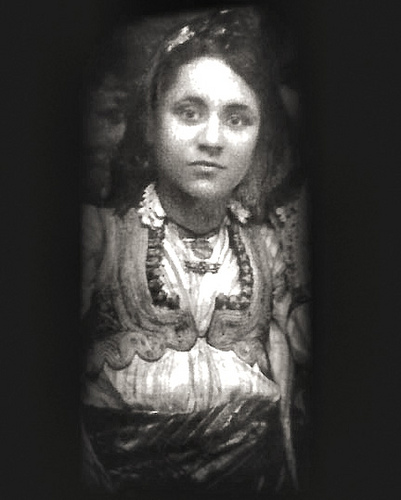

 Check out the movie I just love on her life, “Mother Teresa” starring the wonderful Olivia Hussy. Bruce and I had a chance to talk with Olivia…what a blessing.
Check out the movie I just love on her life, “Mother Teresa” starring the wonderful Olivia Hussy. Bruce and I had a chance to talk with Olivia…what a blessing.
